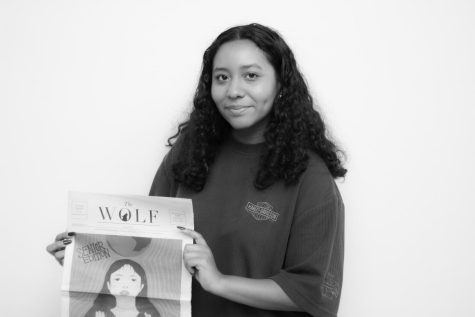Emily Ratajkowski is not your feminist icon.
December 16, 2022
Model and author Emily Ratajkowksi, also known as EmRata, announced her podcast “High Low with EmRata” on Oct. 13. The first episode was set to release on Nov. 1, and like other Ratajkowski fans, I was excited.
I’ve read and watched Gone Girl religiously because of her and read her book My Body, about Ratajkowski’s experience with feminism, sexual assault, beauty standards and relationships with men and women. Ratajkowski’s well-written and thought-provoking book made me interested in her podcast.
In the first episode, Ratajkowski was joined by her friend Barbara Knapp. This entire episode was enjoyable due to the humor, but it was the most surface-level conversation about masculinity among hetero relationships, something Ratajkowski heavily talks about in her book. The banal conversations and topics throughout the 31 minutes made me curious enough to Google search “Emily Ratajkowski, feminism.” I read countless interviews of what seemed to be Ratajkowski having a problematic understanding of what being a self-titled “feminist icon” entails. It’s not all about being able to be photographed nude or being able to speak about sex freely; it is about equity when it comes to more than just superficial issues, which Ratajkowski speaks about through a quick Instagram story repost.
Some might say, “it is not her responsibility to keep you updated on these issues,” and I agree, but to be a self-proclaimed activist with such glib conversations and experiencing praise from media all around doesn’t make you a feminist icon. But there are women who have devoted their lives to being heard and seen through pensive novels and journalism that never get the acknowledgment of their activism. One example is author Gloria Walkins, known as bell hooks.
In her book Ain’t I A Woman: Black Women and Feminism, hooks stated, “It is obvious that many women have appropriated feminism to serve their ends, especially those white women who have been at the forefront of the movement.”



